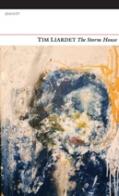 Tim Liardet’s sixth full collection, The Storm House, revolves around the death, in possibly suspicious circumstances, of his brother in 2006. The search to find out what happened involves an unsparing dissection of family relationships. “I want to walk you out of the furnace, put you together/ as if by doing so I might be able to map/ a way back for you, forward for me. Then let you sleep”, Liardet writes in sonnet 3 from the collection’s title sequence.
Tim Liardet’s sixth full collection, The Storm House, revolves around the death, in possibly suspicious circumstances, of his brother in 2006. The search to find out what happened involves an unsparing dissection of family relationships. “I want to walk you out of the furnace, put you together/ as if by doing so I might be able to map/ a way back for you, forward for me. Then let you sleep”, Liardet writes in sonnet 3 from the collection’s title sequence.
The book depicts the brother’s suffocating bond with his mother, his growing proximity to violence, his unpredictable personality, and his moments of vulnerability. It forges unity from repetitions which call poems into relationship with one another. Craneflies first crop up in The Jigging Season. An “enormity of life-fizz” makes them jig against a window, as if the glass were roasting hot and the craneflies could already smell the first frost from the world beyond. In The Ghost Train, the craneflies fizz around the mother’s head and indeed inside “the mind’s lampshade”. “Lord, bring us the extremity of the first/ frost,” she says. In sonnet 26 of The Storm House, the narrator imagines himself jigging on his brother’s coffin lid (in context, not a mark of disrespect) and in sonnet 27 the brother has died “lost/ in the city of self which towered, awaiting the first frost.” Blood, weather, falls, bulging, impotent fury, and various other images, make multiple appearances.
These echoes contribute to the book’s cohesion and also to its complexity. It is satisfyingly multi-layered: each time a word or image is used, we compare previous usages; differing nuances connect, disconnect and reformulate within our minds. The effect can’t be summed up but the echoes continue to ring.
Liardet has a gift for cinematic imagery: stillness amid movement. In Deleted Scene (The Jug), the brother (“you” in the poem) is asked to hold a jug filled with water and find a way to smash it without spilling anything. He simply drops it, and:
just for the briefest second the water held
a miraculous jug-shape and stood there on its own –it trembled, trembled, as you willed it to –
before its hips broadened, brought it slapping to the tiles.
A nightmarish imagination combines with narrative fizz, dark humour and emotional complexity to produce a visceral and cohesive collection. When I’d finished, my mind kept turning, much like Tim Liardet’s seemed to do in poem after poem:
I said it, over and over again:
for the last time now goodnight, Davy;
for the last time now goodnight, Davy.
(‘…Lay Thee Down’)
And yet, after each “last” reading, the poems leave us mystery to turn over in the mind and keep turning over.
(originally published in the Magma e-newsletter, October 2011)
